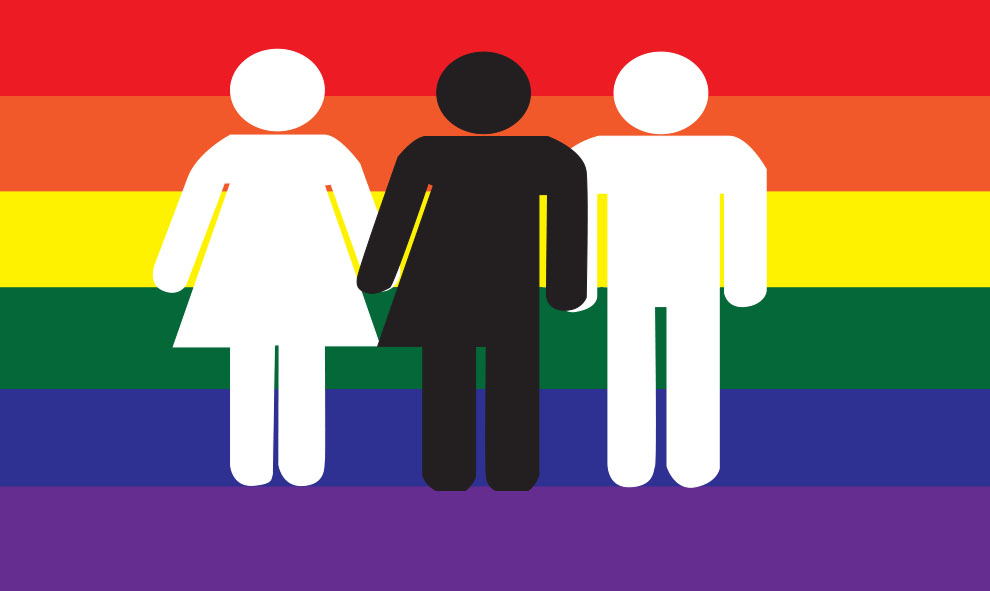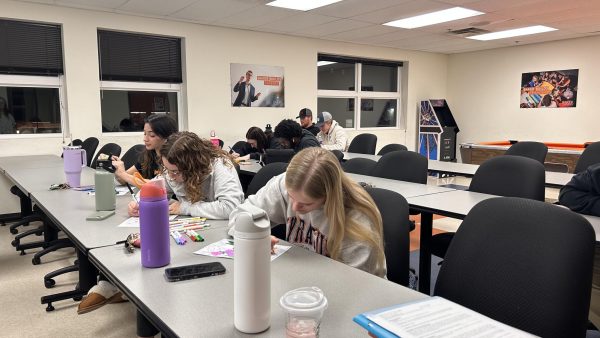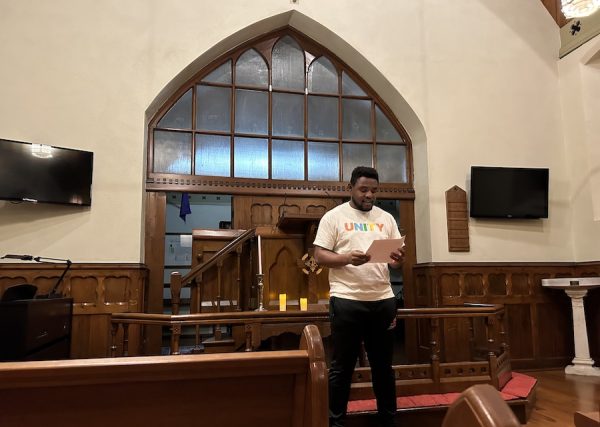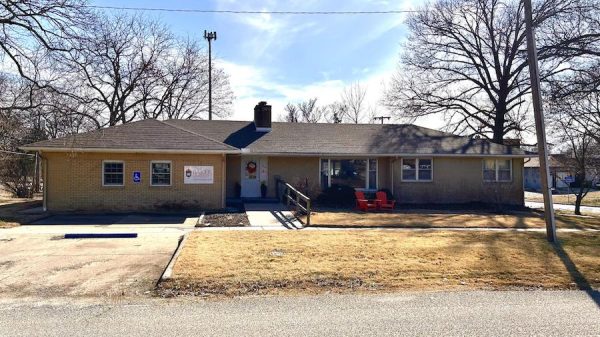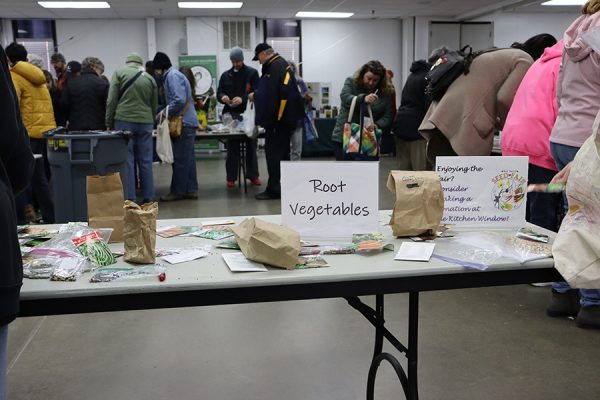Talking transgender: the bathroom debate on campus
May 21, 2016
For most students at Baker, deciding which bathroom to use is not a problem. For sophomore Blythe Smith, though, the decision isn’t so simple. Blythe identifies with traits of both genders and is genderfluid, which can create an awkward dilemma.
“I plan to keep my beard, so going into the women’s room can be uncomfortable for me,” Smith said.
Though the LGBTQ community celebrated a legal victory after the 2015 U.S. Supreme Court decision to legalize gay marriage, a not-so-new challenge remains. Some Kansas legislators, as well as lawmakers in other states, such as Florida, Minnesota, Kentucky, Nevada and North Carolina, are working toward requiring transgender individuals to use public restrooms based on the sex listed on their birth certificate, regardless of what they look like or how they self-identify.
If such a law takes effect in Kansas, Smith would be forced to use the women’s restroom.
Public companies are already taking sides on the issue as some businesses, including Target, have announced policies allowing customers to use whichever bathroom they choose. Target’s decision has caused some critics to advocate boycotting the company.
THE DILEMMA AT BAKER
The debate is no less controversial on college campuses, and many Baker students have joined the conversation, their stands made evident in social media memes and posts and classroom conversations. Leaders of BU’s Total Equality Alliance (TEA) believe the issue is not really about bathrooms but instead stems from fears about other social issues, such as rape culture and a historic fear of those who are different. TEA is a student-run campus organization that seeks to better educate students about the importance of social equality.
Junior TEA member Emi Kniffin said the BU organization is much like gay-straight alliance groups on other campuses. TEA hopes to ensure that every student feels welcomed and included in the Baker community.
“I think people are trying to find a way to channel their prejudice,” Kniffin said. “They feel this way about people and they don’t know how to attack them, and so they say, ‘You’re attacking me and invading my space.’”
Though she believes that some of the memes and posts on Facebook and Twitter are cleverly constructive for the LGBTQ community, Kniffin said social media can be a double-edged sword, spreading as much ill as good.
“People are using social media to say how they believe it’s wrong, and they’re warping other people’s feelings about it, so that’s an obstacle we have to overcome right now,” Kniffin said.
Another TEA member, senior MacKenzie Sammons, is surprised the bathroom debate has gotten so much publicity.
“This is not a new phenomenon,” Sammons said. “My problem is that there should be a war on public restrooms, but it should not be about gender identification. It should be about sexual assault. If we’re going to protect people, we need to protect the people that need it and not let fear and prejudice be turned against people who don’t deserve it.”
Outside of TEA, some other BU students, including junior Amanda Conrade, agree with Kniffin on the need to protect rights for transgender students.
“I’ve had discussions about the topic and feel that if it’s how they identify, I shouldn’t have the right to go against that,” Conrade said. “I can use the bathroom I want to use, so why can’t they? Besides, I’m in my own stall. Why would I care?”
POTENTIAL PROBLEMS
While both Sammons and Kniffin likely represent the majority of student opinions on the BU campus, at least one student is not afraid to voice his opposition.
Junior Lucas Roucher said that while he understands that the issue is not necessarily the LGBTQ community’s fault, he does not feel comfortable legally allowing some people to enter any bathroom they choose. Roucher said most of his fear stems from “pervs” who would take advantage of more liberal laws.
“Men who just want to get into the women’s bathroom and assault women could just walk in legally,” Roucher said. “If I have a daughter, I wouldn’t be OK with allowing her to go into public restrooms.”
For Roucher, a related potential concern would be pedophiles.
“Something will have to happen before we realize the problem,” Roucher said. “Sadly, that’s the way it always goes.”
Roucher said he believes that if transgender individuals continue to be allowed in whichever bathroom they choose, the solution could be special bathrooms designated for single family use and for individuals too timid to use the larger bathrooms for whatever reason.
“The sooner people face the facts, the sooner things will be fixed,” Roucher said.
Roucher is not alone in fearing the potential dangers created by allowing transgenders to use any bathroom they choose, but other students with similar views asked not to be named in this story.
BEING TRANSGENDER ON THE BU CAMPUS
Smith, who identifies with both genders, believes that social rights are being violated. Smith also thinks that other members of the transgender community will most likely have more struggles with the bathroom problem.
“I would probably not have as hard a time as others with it. I’d be more concerned about others around me who very much present as a man but have yet to have papers or physical body changed,” Smith said.
Smith finds hope in recent progressive conversations about the transgender community in general.
“For the LGBTQ community as a whole, having won gay marriage is huge, but there’s still more we’re demanding,” Smith said. “Social progress in America has definitely been made, but we’ve so much more to do.”
Total Equality Alliance posted signs on campus bathrooms doors for Trans Visibility Day on March 31.
TEA’S PLAN
TEA showed its support for the LGBTQ community’s bathroom rights by organizing Trans-Visibility Day on March 31. TEA members posted slips of paper on every bathroom around campus encouraging students to think about public bathrooms from a transgender point of view.
“As someone who doesn’t identify as something other than the heteronormative way,” Kniffin said, “I think that that’s something Baker can be better about – just spreading that awareness.”
TEA also hosted events in April promoting awareness for the LGBTQ community, including the Day of Silence event on April 15 that encouraged students to remain silent throughout the day to raise awareness for anti-bullying and violence towards LGBTQ members.
“TEA is doing good things for the Baker community and is giving us a safe haven for discussion and for further education,” Sammons said. “TEA is young, but I think that the more time we have to grow, the stronger the organization will become.”
HOME SWEET BAKER
Many students believe Baker is ahead of the game in terms of total equality.
“I feel like among the student body, there is a really low rate of discrimination,” Conrade said. “We’re all very welcoming here at Baker.”
Smith agrees, saying that he finds Baker to be a home away from home.
“I found a new family here at Baker,” Smith said. “After talking to people who go to KU and talking to professors who have connections outside of Baker, I feel as though Baker is one of the safest places for a LGBTQ community. I’m happy here.”



